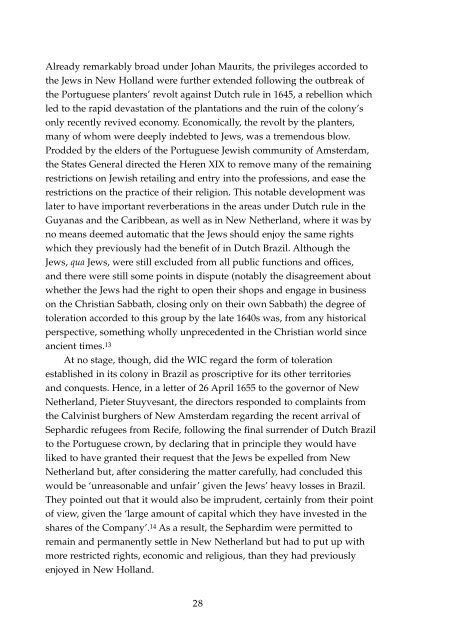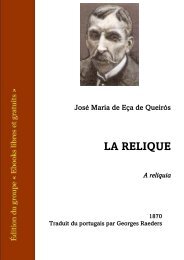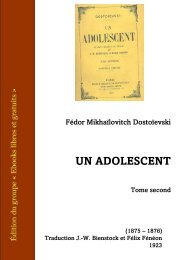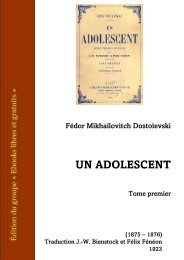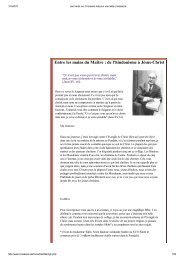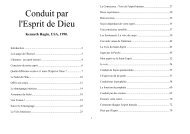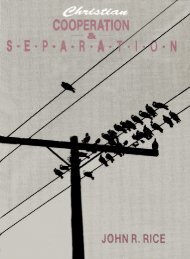The Expansion of tolerance
You also want an ePaper? Increase the reach of your titles
YUMPU automatically turns print PDFs into web optimized ePapers that Google loves.
Already remarkably broad under Johan Maurits, the privileges accorded to<br />
the Jews in New Holland were further extended following the outbreak <strong>of</strong><br />
the Portuguese planters’ revolt against Dutch rule in 1645, a rebellion which<br />
led to the rapid devastation <strong>of</strong> the plantations and the ruin <strong>of</strong> the colony’s<br />
only recently revived economy. Economically, the revolt by the planters,<br />
many <strong>of</strong> whom were deeply indebted to Jews, was a tremendous blow.<br />
Prodded by the elders <strong>of</strong> the Portuguese Jewish community <strong>of</strong> Amsterdam,<br />
the States General directed the Heren XIX to remove many <strong>of</strong> the remaining<br />
restrictions on Jewish retailing and entry into the pr<strong>of</strong>essions, and ease the<br />
restrictions on the practice <strong>of</strong> their religion. This notable development was<br />
later to have important reverberations in the areas under Dutch rule in the<br />
Guyanas and the Caribbean, as well as in New Netherland, where it was by<br />
no means deemed automatic that the Jews should enjoy the same rights<br />
which they previously had the benefit <strong>of</strong> in Dutch Brazil. Although the<br />
Jews, qua Jews, were still excluded from all public functions and <strong>of</strong>fices,<br />
and there were still some points in dispute (notably the disagreement about<br />
whether the Jews had the right to open their shops and engage in business<br />
on the Christian Sabbath, closing only on their own Sabbath) the degree <strong>of</strong><br />
toleration accorded to this group by the late 1640s was, from any historical<br />
perspective, something wholly unprecedented in the Christian world since<br />
ancient times. 13<br />
At no stage, though, did the WIC regard the form <strong>of</strong> toleration<br />
established in its colony in Brazil as proscriptive for its other territories<br />
and conquests. Hence, in a letter <strong>of</strong> 26 April 1655 to the governor <strong>of</strong> New<br />
Netherland, Pieter Stuyvesant, the directors responded to complaints from<br />
the Calvinist burghers <strong>of</strong> New Amsterdam regarding the recent arrival <strong>of</strong><br />
Sephardic refugees from Recife, following the final surrender <strong>of</strong> Dutch Brazil<br />
to the Portuguese crown, by declaring that in principle they would have<br />
liked to have granted their request that the Jews be expelled from New<br />
Netherland but, after considering the matter carefully, had concluded this<br />
would be ‘unreasonable and unfair’ given the Jews’ heavy losses in Brazil.<br />
<strong>The</strong>y pointed out that it would also be imprudent, certainly from their point<br />
<strong>of</strong> view, given the ‘large amount <strong>of</strong> capital which they have invested in the<br />
shares <strong>of</strong> the Company’. 14 As a result, the Sephardim were permitted to<br />
remain and permanently settle in New Netherland but had to put up with<br />
more restricted rights, economic and religious, than they had previously<br />
enjoyed in New Holland.<br />
28


